Cybersecurity
Ticketmaster Data Breach: What to Do If You’re Affected
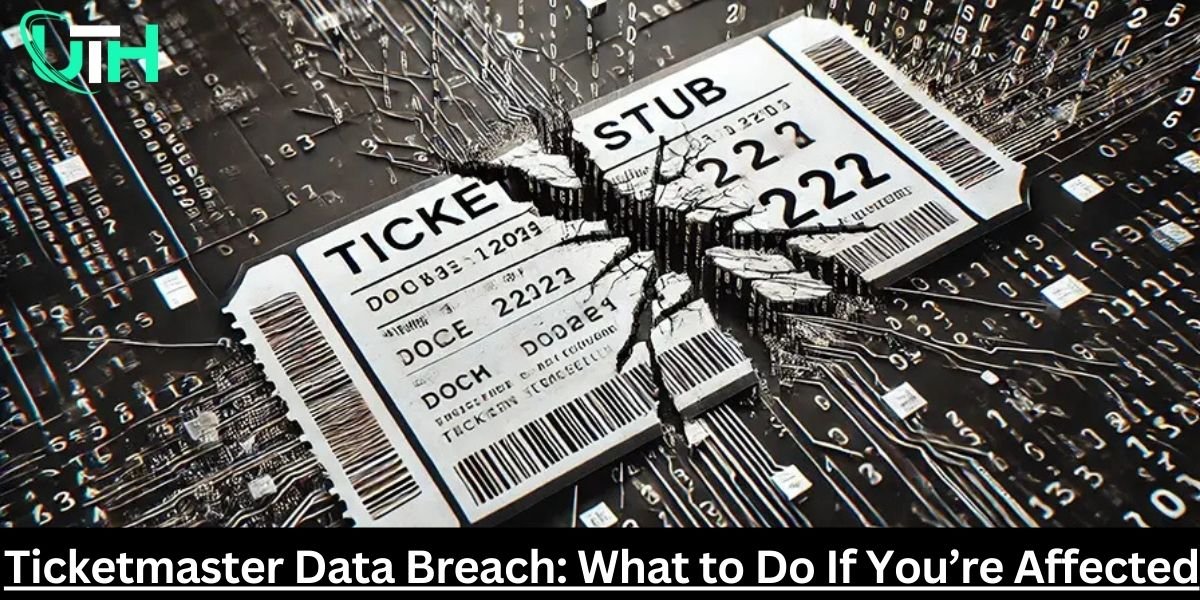
Have you ever been a victim of a Ticketmaster data breach? This comprehensive guide provides overall information you may need to know about the incident, including what happened, what should you do to protect yourself, your legal options, and strategies to stay safe from future breaches.
Introduction
In today’s digital era, data breach is a rising threat. The Ticketmaster data breach, linked to Live Nation, has raised serious concerns about the security of sensitive and personal information customers. If you ever have used Ticketmaster and your data was compromised, dive into this article. Because, This article is designed to give you clear, actionable advice on what to do next.
What Happened?
While details are still emerging, it’s crucial to know the circle of the Ticketmaster data breach. Initial reports suggest that the data breach compromised customer’s personal information, including names, addresses, email addresses, and partial credit card details. The connection between Ticketmaster and its parent company, Live Nation, is significant, as they share infrastructure and data access, which could have implications for the breach. However, Transparency from the affected companies is crucial for building trust and preventing future breaches.
How Big Was the Data Breach?
The scale of the Ticketmaster data breach has been the subject of conflicting reports. However, The hacker group ShinyHunters claims to have compromised the personal details of approximately 560 million customers, including names, addresses, and partial credit card information. (bitdefender.com)
Furthermore, Ticketmaster has stated that fewer than 1,000 individuals were affected by the breach. (crn.com) This variation highlights the ongoing investigation and the need for further verification to determine the exact report of affected individuals.
How Did It Happen?
The technical details of the Ticketmaster data breach are complex and have been partially disclosed. In May 2024, unauthorized activity was detected on an isolated cloud database hosted by a third-party data services provider, later identified as Snowflake Inc. The breach was attributed to the hacker group ShinyHunters, who reportedly gained access by exploiting login credentials obtained through infostealer malware. This malware specializes in extracting sensitive data, such as usernames and passwords, from victims’ devices. The compromised database contained limited personal information of some customers who purchased tickets to events in North America, including names, addresses, email addresses, and payment card details. Transparency from the affected companies is crucial for building trust and preventing future breaches.
Impact of the Breach
Data breaches can have long-lasting effects. Here are some impacts of the Ticketmaster data breach:
Impact on Customers
For the customers of Ticketmaster, the potential impact may include:
- Financial Losses: Unauthorized charges to credit cards or bank accounts, identity theft, and the costs associated with credit monitoring and fraud resolution.
- Reputational Damage: If personal information is leaked, it could lead to embarrassment or even harm to one’s reputation.
- Emotional Distress: The stress and anxiety caused by a data breach can be significant.
Other Impacts
Beyond the impact on customers, the Ticketmaster and Live Nation organizations themselves may also face consequences, including legal repercussions, reputational damage, and internal investigations
How to Check if You Were Affected?
- Ticketmaster Notification: The most direct way is to look for an official notification from Ticketmaster. Official notifications will likely come from a verified Ticketmaster email address (e.g., @ticketmaster.com) and will never ask for your password or sensitive information directly. Be cautious of phishing emails mimicking official notifications. Phishing emails often contain faint variations, such as unusual sender addresses, spelling errors, or urgent requests for action. Always verify by visiting the official Ticketmaster website directly and not by clicking links in suspicious emails.
- Account Review: If you notice any suspicious activity, log in to your Ticketmaster account and review your purchase history and personal information. Look for any unauthorized activity.
- Credit Monitoring: If you’re concerned, consider checking your credit report or enrolling in a credit monitoring service.
Ticketmaster Data Breach: What to Do
Taking swift action is vital after a data breach. Here are some steps to follow, if you were affected by the Ticketmaster data breach.
Immediate Actions
Change Your Password
Immediately change your Ticketmaster password. Also, change the password of any other online accounts that use the same password. Use a strong, unique password for each social account.
Monitor Your Finances
If you are in doubt of a data breach then closely monitor your credit card statements and bank accounts for any unauthorized activity. Report any suspicious transactions to your bank or credit card company immediately. However, It’s good practice to delete any online accounts you no longer use. This minimizes your risk of future data breaches.
Fraud Alert
Place a fraud alert on your credit report. This makes it harder for identity thieves to open new accounts in your name.
Beware of Phishing
Stay informed about data breaches and cybersecurity best practices. Follow reputable news sources and cybersecurity blogs. Be extremely cautious of any emails, phone calls, or text messages claiming to be from Ticketmaster or Live Nation. Phishing scams often try to trick you into revealing personal information.
Red Flags for Phishing Emails:
- Misspellings and Grammatical Errors: Legitimate communications from reputable companies are typically well-written. Emails with noticeable spelling or grammatical mistakes may be fraudulent.
- Urgent Requests for Information: Scammers often create a sense of urgency, prompting you to act quickly. Be wary of messages that pressure you to provide personal details or make immediate payments.
- Unusual Sender Addresses: Phishing emails may come from email addresses that appear similar to official ones but contain slight variations or unfamiliar domains. For example, an email from “support@ticketmast3r.com” instead of “support@ticketmaster.com” is suspicious.
- Generic Greetings: Legitimate companies often use personalized greetings. Emails that start with a generic salutation like “Dear Customer” or “Dear User” may be phishing attempts.
- Suspicious Links or Attachments: Avoid clicking on links or downloading attachments from unsolicited emails. Hover over links to check if the URL matches the official website.
Ticketmaster Data Breach Compensation
Depending on the circumstances, you might be eligible for compensation from Ticketmaster or Live Nation. If you received an official notification from Ticketmaster about the data breach, it’s important to understand the process for filing a claim.
How to File a Claim:
- Confirm Eligibility: Check if you received an official email or letter notification from Ticketmaster about the data breach. If you didn’t receive a notice but believe you may be affected, contact Ticketmaster directly.
- Gather Documentation: Collect all relevant information, including:
- Emails from Ticketmaster about the breach
- Evidence of any fraudulent charges
- Records of time spent addressing the breach
- Submit a Claim: Visit Ticketmaster’s official website or contact their customer service to inquire about the claims process. They may provide a form or instructions on how to proceed.
Potential Compensation
Compensation may include reimbursement for out-of-pocket expenses, such as costs incurred from identity theft protection services or unauthorized transactions. In some cases, affected individuals may also receive free credit monitoring services. The exact compensation varies based on the severity of the breach and the impact on the individual.
How Did Ticketmaster Solve It?
Ticketmaster has taken several steps to address the breach and prevent future incidents, including collaborating with cybersecurity experts, enhancing security with Two-Factor Authentication (2FA), and implementing SafeTix™ technology for ticket security. They are committed to improving data protection and preventing similar breaches. (help.ticketmaster.com)
What is Ticketmaster Doing?
Ticketmaster has acknowledged the data breach and is investigating it with cybersecurity experts. The breach, involving a third-party cloud provider, affected some customers’ personal information, including names, addresses, and partial credit card details. They have secured accounts, notified affected customers, and advised on necessary precautions. Transparency and accountability are vital in addressing the breach and protecting customer data. (help.ticketmaster.com)
Conclusion
The Ticketmaster data breach is a reminder of the importance of online security. By taking the steps outlined in this article, you can protect yourself from the potential consequences of this and future data breaches. Stay informed, be vigilant, and take proactive steps to safeguard your personal information.
Frequently Asked Questions (FAQ)
What should I do if I receive a suspicious email about the Ticketmaster breach?
Do not click on any links or open any attachments. Report the email as phishing to your email provider.
How can I tell if my Ticketmaster account was compromised?
Look for unauthorized purchases, changes to your account information, or suspicious emails.
What is a fraud alert?
A fraud alert tells creditors to verify your identity before opening any new accounts in your name.
-

 Phishing attack8 months ago
Phishing attack8 months agoWhat is Spear Phishing and How You Can Identify This Scam?
-
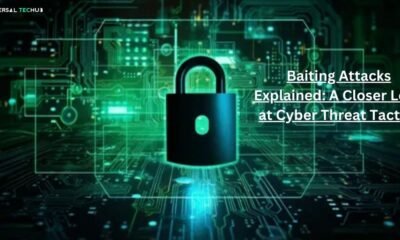
 Social engineering attack10 months ago
Social engineering attack10 months agoBaiting Attacks Explained: A Closer Look at Cyber Threat Tactics
-

 Social engineering attack8 months ago
Social engineering attack8 months agoWhat are Social Engineering Attacks – A Complete Guide to Cyberattacks Prevention
-

 Social engineering attack9 months ago
Social engineering attack9 months agoSpear Phishing Attack: A Targeted Cyber Threat
-
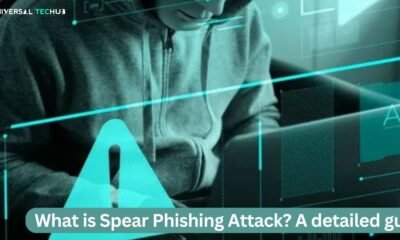
 Social engineering attack10 months ago
Social engineering attack10 months agoWhat is spear phishing attack? A detailed guide
-
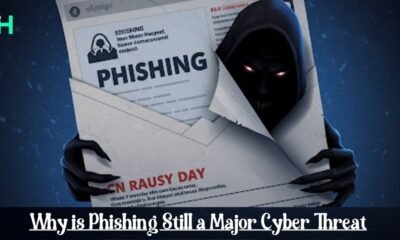
 Phishing attack4 months ago
Phishing attack4 months agoWhy is Phishing Still a Major Cyber Threat? Everything You Need to Know
-
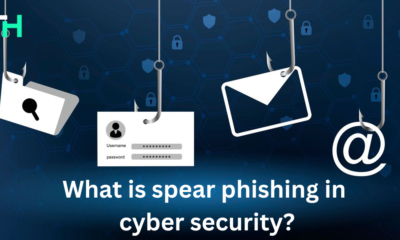
 Social engineering attack10 months ago
Social engineering attack10 months agoWhat is spear phishing in cyber security?
-
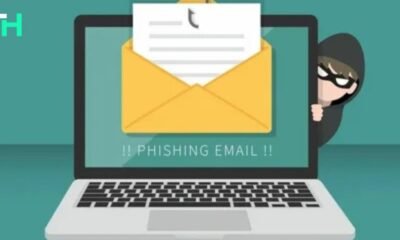
 Phishing attack8 months ago
Phishing attack8 months agoWhat Are Phishing Emails? A guide for you




















